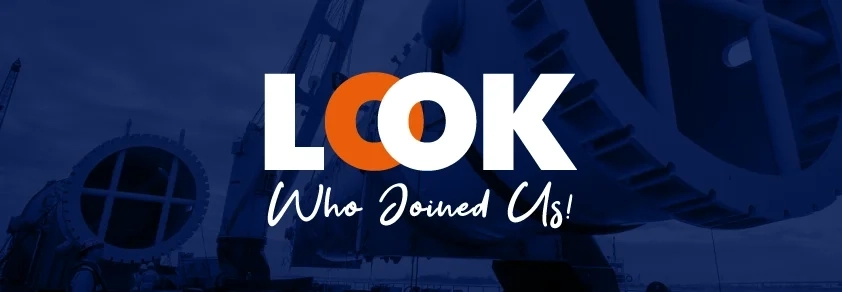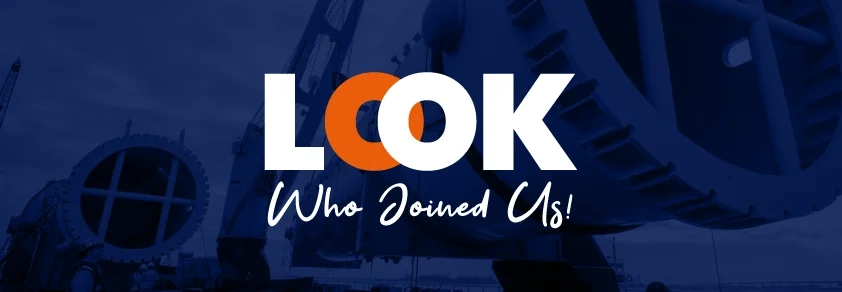The Future of Ports: Smarter Infrastructure, Bigger Freight
Table of Contents
Ports are entering a new era where oversized cargo and heavy lift projects set the pace. Growing demand for energy plants, offshore platforms, and major infrastructure means ports must adapt with smarter infrastructure and bigger capacity. For the companies handling project cargo, this shift is not a distant trend — it is today’s reality.
Project cargo, as opposed to containerized trade, handles large loads like industrial boilers, subsea modules, turbines, reactors, and enormous construction equipment, among others. To put it another way, a cargo that doesn't fit neatly inside a box. Therefore, ports that handle these overweight and enormous shipments need to have better systems, specialized infrastructure, and strong supply chain communication. As trade grows, the question is clear: are our ports ready for bigger freight?
Ports Built for Giants: Why Infrastructure Matters
For project cargo, ports are not just gateways — they are critical work sites. Even the most competent heavy lift transport vessels or project cargo shipping companies or heavy lift transport vessels cannot do their jobs without the proper infrastructure.
In contrast to container shipping, heavy lift operations rely on ports equipped with deeper water access for large vessels, stronger quay structures to bear extreme oversized loads, and specialized lifting gear designed for oversized cargo. Moving items such as wind turbine blades or heavy industrial machinery often calls for purpose-built facilities — from roll-on/roll-off ramps to modular transporters — as well as storage areas adapted for non-standard shapes.
Although these facilities require significant financial outlays, they are essential to the effective project cargo logistic. In a world building more renewable energy plants, offshore projects, and large-scale infrastructure, ports that can handle heavy lift safely and efficiently are positioned at the center of global trade.
Smarter Tools, Smoother Operations
Just having infrastructure isn't sufficient anymore. To remain competitive in the rapidly changing trade landscape, contemporary ports are incorporating digital technologies. Intelligent and automated sensors, scheduling solutions, and yard organization are transforming the management of oversized cargo.
For project cargo networks, this technology provides real advantages. Breakbulk shipments can now be tracked in real time. Smart scheduling may serve as an effective approach for sea freight forwarding services to avoid conflicts during heavy lift processes. Digital platforms enable forwarders to maintain better communication with port personnel and other logistics collaborators, which typically leads to reduced delays and more dependable transfers across the supply chain.
Digital transformation also helps project managers control costs. By comparing available routes, optimizing storage space, and forecasting potential delays, ports reduce inefficiencies. The result: oversized loads that once faced with unpredictable schedules now move with greater consistency and reliability.
Safety and Specialized Handling in Heavy Lift
Project cargo shipping is never a matter of size; it is a matter of safety. All cargos — whether a construction crane, an industrial generator, or drilling gear in an oil field — require careful handling.
Ocean freight shipping companies and sea freight forwarders work in concert so that customized equipment, ranging from heavy lifting cranes through lashing sets and dynamic positional ships, are on hand and ready. Engineers mark the center of gravity on a specific basis on each piece of freight. Special lifting plans are tailored by rigging gangs. International standards compliance provides a hassle-free course in paperwork and in clearing the cargo through customs.
For shippers, determining the best shipping companies for heavy lift involves mitigating risk and safeguarding schedules. A single accident or delay can affect entire infrastructure projects. That is why trusted networks and experienced partners are essential — they bring together the know-how to manage these complex logistics safely.
Ports of the Future: Greener and More Connected
Sustainability is more and more a focus in the future port debate, and less emphasis is being placed on speed and capacity and more on reducing the environmental impact of port activities. Globally, the industry is undertaking efforts to reduce fuel consumption, search for cleaner sources of power, and make their equipment and infrastructure more efficient in general.
International sea freight shipping companies are active partners in this transition. By working with port authorities, they are helping design greener trade routes and more efficient operations. For project cargo, this means that moving heavy lift equipment across oceans can be done with a smaller environmental footprint.
Connectivity is another defining trend. Tomorrow’s ports will not only be greener but also more integrated into the global supply chain. Data sharing, blockchain-based documentation, and real-time monitoring will make it easier for oversized cargo shipping projects to coordinate across borders. Transparency will no longer be an option — it will be a standard expectation.
The Future of Supply Chains: Where Heavy Equipment Meets Global Trade
Globally, there is ever-increasing demand for colossal infrastructure. Smart cities, wind farms, production plants, and offshore platforms all require hassle-free project cargo transport. Project cargos are no longer goods-moving activities; they are driving innovations in energy, constructions, and tech.
With heavy equipment transport and oversize hauls becoming increasingly common, the ports need to keep evolving. The ports of the future will need both smarter infrastructure and stronger digital tools. But just as importantly, they will need partnerships — between forwarders, carriers, and specialized networks that can bring expertise together.
OPCA: Connecting the Experts in Project Cargo
At the Overseas Project Cargo Association (OPCA), this vision of the future is already part of daily reality. OPCA unites project cargo shipping companies, heavy lift transport experts, and specialized freight forwarding agencies from across the world.
Our members share resources, knowledge, and innovative solutions to handle the most complex oversized shipments. From breakbulk to container shipping, from heavy lift shipping to multimodal strategies, OPCA members know how to manage cargo that others cannot.
By joining OPCA, companies gain access to a project cargo network built on trust and collaboration. It is a community focused on helping members succeed in the evolving world of heavy lift logistics and smarter ports.
Explore the OPCA Directory to connect with professionals who understand the challenges of oversized and heavy cargo and discover how our network can help you move forward in the era of smarter, greener, and more connected ports.
_logo.webp)



